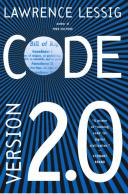Книга: Code 2.0
The One Law Rule
The One Law Rule
The opposite result of no law is a world where there is but one law. It is the world where one government (or conceivably, all governments working together, but that idea is too ridiculous to even contemplate so I won’t discuss it here) dominates the world by enforcing its law everywhere.
As Michael Geist convincingly argues, that’s indeed what is happening now. “Governments”, Geist writes, are “unwilling to concede that national laws are limited to national borders, and are increasingly turning to explicitly extra-territorial legislation.”[26]
Here again (unfortunately), the United States is a leader. The United States has a view of proper network behavior. It has asserted the right to enforce that view extraterritorially, and it enforces its rule against citizens from around the world whether or not the U.S. rule conflicts with a local rule. The FTC, for example, is “vested with responsibility for enforcing the Child Online Privacy Protection Act”, Geist writes, and “its rule-making guidance leaves no doubt that such sites are expected to comply with the statute in their privacy practices toward children.”[27] So too does the Department of Justice maintain that the DMCA applies extraterritorially, because it refers to “imports” of technologies.[28] And the USA Patriot Act includes provisions that “are expressly extra-territorial” — including, for example, an expansion of the list of “protected computers” to include “a computer located outside the United States that is used in a manner that affects interstate or foreign commerce or communication of the United States.”[29]
Of course, Geist’s claim is not that the United States has tamed the Internet. No one would assert that the United States has stopped crime on the network, or even behavior inconsistent with U.S. law. But the attitude and theory that animates U.S. prosecution has no conceptual limit. On the theory the United States advances, there is no behavior anywhere that at least in principle the United States can’t reach. (Though there are many who believe international law restricts the United States more than it acknowledges.)[30]
It may be that this dominance by the United States will continue for ever. But I doubt it. There is a growing desire among many governments around the world to check the power of the United States. In 2005, some of these government tried to wrest control of ICANN (Internet Corporation for Assigned Names and Numbers ) from U.S. influence. This resistance, as well as a healthy dose of sovereign self-respect, will increasingly push for a regime that better balances the interests of the whole world.
- 4.4.4 The Dispatcher
- About the author
- Chapter 7. The state machine
- Chapter 8. Saving and restoring large rule-sets
- Chapter 9. How a rule is built
- Appendix E. Other resources and links
- Example NAT machine in theory
- The final stage of our NAT machine
- Compiling the user-land applications
- The conntrack entries
- Untracked connections and the raw table
- Basics of the iptables command




